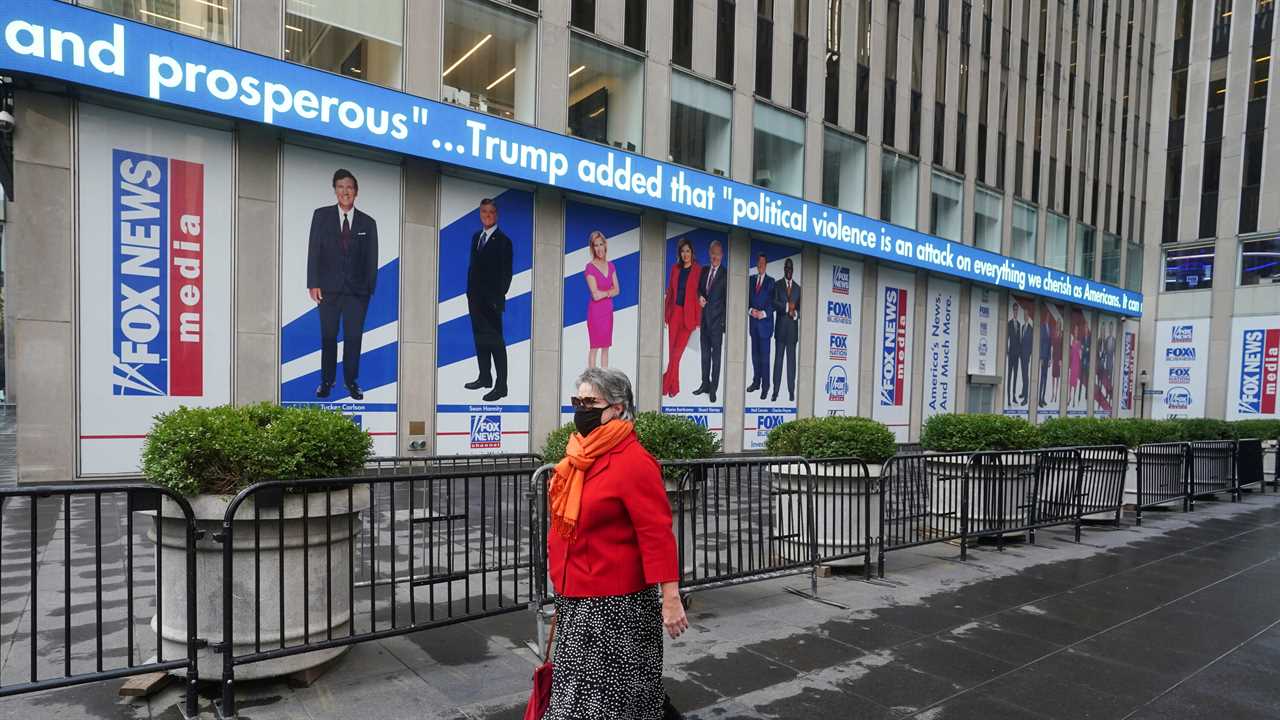
With the Senate’s impeachment trial starting oral arguments tomorrow, Donald Trump now faces the possibility of real consequences for his role in inciting the Capitol siege of Jan. 6.
But the apparatus that fed him much of his power — the conservative news media — is facing a test of its own. This might ultimately have a much bigger impact on the future of American politics than anything that happens to Mr. Trump as an individual.
In recent weeks, two voting-technology companies have each filed 10-figure lawsuits against Mr. Trump’s lawyers and his allies in the media, claiming they spread falsehoods that did tangible harm. This comes amid an already-raging debate over whether to reform Section 230 of the Communications Decency Act, which prevents online companies from being held liable for the views expressed on their platforms.
“The greatest consequence of the Trump presidency has been the weaponizing of disinformation and parallel dismantling of trust in the media,” Mark McKinnon, a longtime political strategist and co-host of the Showtime political series “The Circus,” told me in an email.
“Unfortunately, it took the perpetration of the big lie that the election was a fraud, an insurrection at the Capitol, and almost destroying our democracy for someone to finally take action. But it appears to be working,” Mr. McKinnon said. “Nothing like threatening the bottom line to get the desired attention.”
On Thursday, the voting-machine company Smartmatic filed a $2.7 billion lawsuit against Fox News, some of its prominent hosts and two lawyers who represented Mr. Trump, Sidney Powell and Rudy Giuliani. The suit accuses them of mounting a campaign of defamation by claiming that Smartmatic had been involved in an effort to throw the election to Joe Biden. That came on the heels of a similar $1.3 billion suit that Dominion Voting Systems brought against Mr. Giuliani the week before.
The impact was immediate. Newsmax, an ultraconservative TV station that has expanded its popularity by lining up to the right of Fox News, cut off an interview with the MyPillow founder Mike Lindell last week as he attacked Dominion — something that commentators had done on the station many times before. Then, over the weekend, Fox Business sidelined Lou Dobbs, one of Mr. Trump’s fiercest TV news defenders and a defendant named in the Smartmatic lawsuit.
Jonathan Peters, a media law professor at the University of Georgia, said that unlike many libel lawsuits, the Dominion and Smartmatic cases do not appear to be publicity stunts; they have a firm legal basis.
“In recent years it has been a boom time for nuisance claims against media organizations,” Dr. Peters said, citing lawsuits brought against traditional news media by Trump allies like Representative Devin Nunes and Joe Arpaio. “The language at issue in the Dominion and Smartmatic litigation has involved statements of fact that would be provably false,” he added. “The language at issue is not necessarily opinion, hyperbole or some other form of invective.”
Because the suits seem to be serious, Dr. Peters said, “this is a corrective for companies and individuals being sued — and for those not being sued it is a shot across the bow.”
But in a media landscape permanently altered by polarization, and by Mr. Trump’s indifference to facts, Fox News and other conservative broadcasters face significant competition from popular YouTubers and Twitter users, who have much more leeway to express potentially harmful views.
Angelo Carusone, the president of Media Matters, a left-leaning group, said this leaves Fox News fighting a two-front war.
“They’re getting attacked by their own people,” he said. “If you’re a conservative channel or host, you need to pick away at Fox News.”






